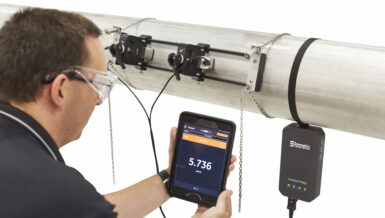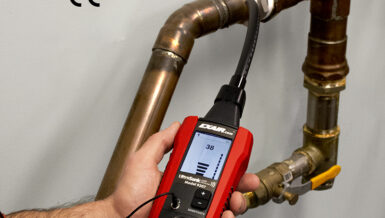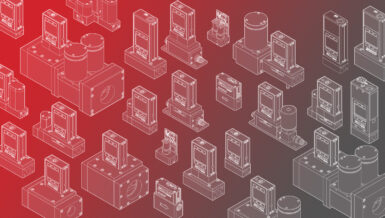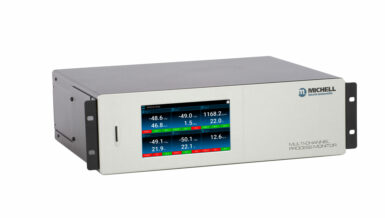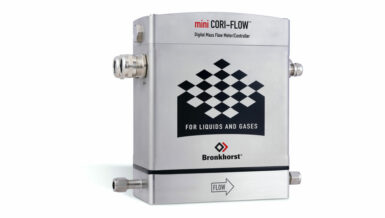While the technology continues to advance, it’s not without its shortcomings. Here we will discuss how some of the problems faced by thermal mass flow controllers can be solved by switching to differential pressure technology.

(Keep reading about the various types of mass flow measurement technologies here).
What difference does swapping to differential pressure instruments really make?
No more correction factors – one MFC’s for multiple gases
Given the fundamental differences in technology between thermal and differential pressure mass flow units, differential pressure units do not require correction factors (k-factors) or recalibration when switching between gases. 100+ gas properties are pre-programmed into differential pressure units, and mixes of known gases can also be easily entered and reliably measured.
Monitoring both mass flow and pressure
Differential pressure technology makes use of measuring the pressure differential when a fluid is flowing in a laminar state. As you might have guessed, this means all units also measure pressure as well as temperature. Therefore with a single unit you can measure mass flow, volumetric flow, pressure and temperature, reducing the need for multiple units and sensors in a system.
Large measurable ranges – turndown ratios
By placing the pressure sensors in Alicat differential pressure units inside the laminar flow elements, differential pressure units are able to reach turndown ratios of 10,000:1 and accuracies of up to ±0.5% of reading or ±0.1% of full scale. Having one device which can cover such large operating ranges often eliminates the need for gas lines to be split over multiple ranges of units to provide measurement of large flow ranges.
Water damage
Legacy thermal technology is very vulnerable to moisture in the flow path, but in reality maintaining a perfectly dry flow path can be difficult. If even a small amount of water entered the flow capillary, the unit would be ruined or the narrow capillary becomes obstructed by the moisture. Differential pressure units are much more robust in this manner, if water enters the flow path there will be no immediate damage. The unit can be flushed with dry air to remove the moisture and the unit can continue working normally.
Flowing aggressive gases
Thermal mass flow units also struggle greatly with corrosive gases. These can cause corrosion and deposition in the narrow capillaries within the unit, greatly effecting flow readings and can even lead to the unit completely burning out. While some thermal technologies cannot handle certain gases due to corrosion of the chip sensors, even with the use of protective coatings. Differential pressure units can be more easily configured for flowing corrosive gases by using all 316L steel, including the sensor package. They are also much more tolerant to deposition and contamination due to the larger flow paths compared to the capillary tubes in thermal mass flow controllers.
No more straight runs of pipe
Traditional thermal mass flow controllers require long straight runs of pipe before the unit in order to provide accurate mass flow readings, due to the turbulent fluid flow patterns caused by bends in the piping, particularly at higher flow rates. Using laminar flow elements eliminates this requisite, and mass flow units can be placed at any point in the system without worrying about flow profiles.
Speed
As differential pressure units don’t use any heating elements, they require no warm up time and can be used instantly once turned on.
When thermal mass flow controllers are still the better choice:
Working at higher pressures
One of the main advantages of thermal mass flow units is their ability to work at higher pressures (>25 bar) than differential pressure units. The design means instrument capabilities are not limited by the pressure tolerances of the sensors like the differential pressure units.
The budget option
If you are looking for a budget, digital mass flow unit then thermal technology provides an ideal option. When operating conditions are not challenging and accuracy specifications are not too strict, budget thermal mass flow controllers provide ideal solutions when pricing is a major factor such as for OEM applications.




